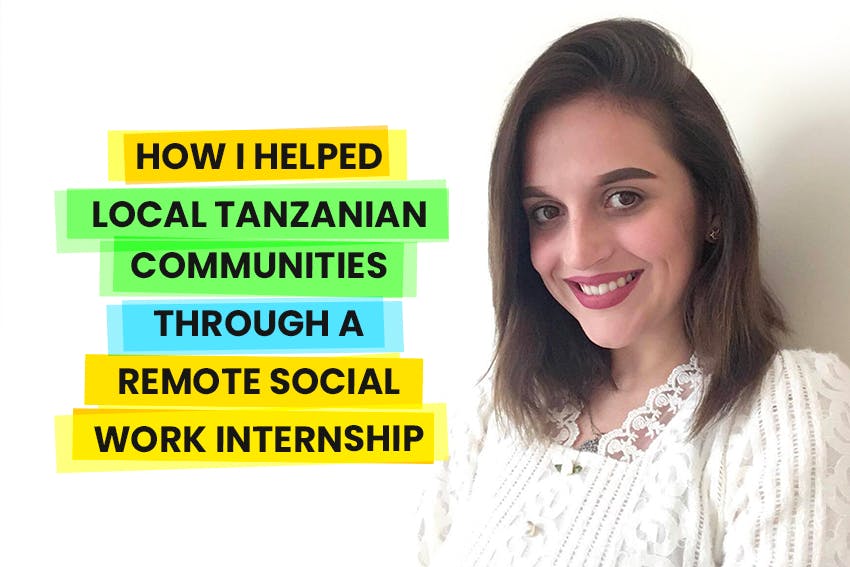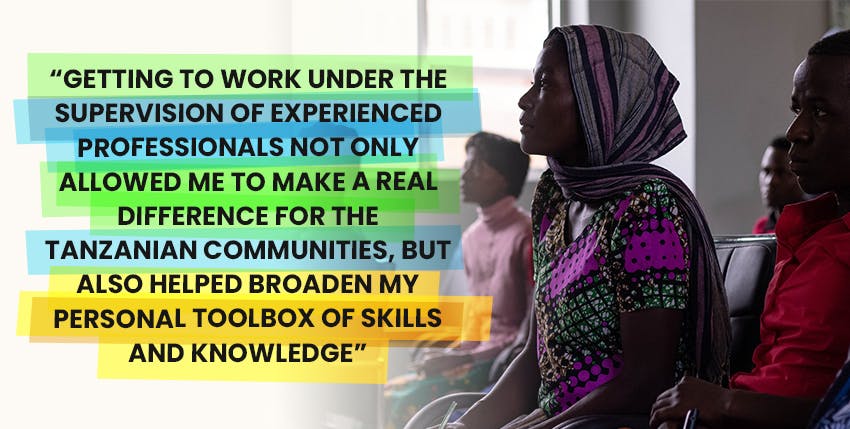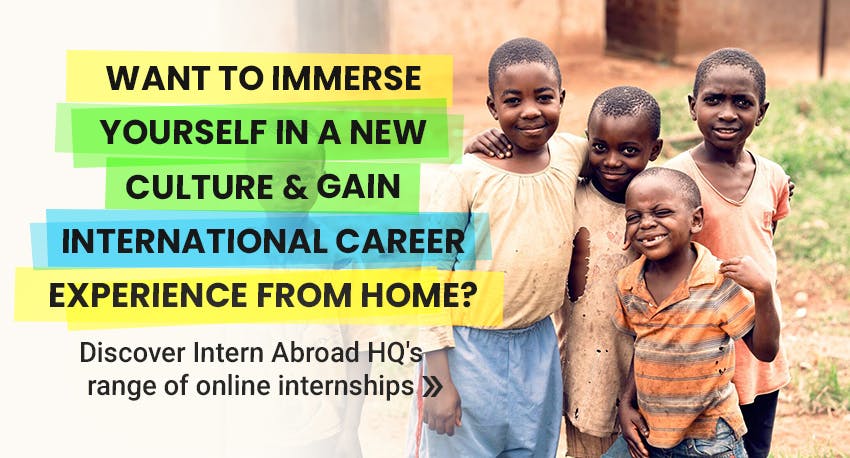
Alina recently completed a Remote Social Work Internship hosted out of Tanzania. She’s completed her Bachelor’s Degree in Social Work and is now pursuing a Masters in International Human Rights Law in the UK.
What was the first week of your remote internship like?
The first week of my internship experience was colorful! It began with an introduction to Tanzanian culture, history and social issues. This helped me understand the barriers that social workers face when working in local Tanzanian communities - ranging from folkloric traditions and beliefs, such as witchcraft, to religious beliefs and social constructs, such as gender inequalities.
Following orientation, my first actual task was to conduct research on the topic of HIV/AIDS and write a succinct in-country research paper. Through my research and via discussions with the team, I was able to learn a lot about the topic.
Looking back at the beginning of my internship experience, I can’t help but smile - I’m genuinely happy and satisfied with everything week one provided, and it set me up to really look forward to the rest of the program.
Why did you choose to do this remote Social Work internship?
This internship aligned well with my long-term career goal of becoming an independent mental capacity advocate (a legal safeguard for people who lack the capacity to make specific important decisions). While my studies have provided me with theoretical knowledge, practical experience is just as important as education! Since 2017, I’ve been studying and working simultaneously, which led me to the RISEWAYSocial Work internship.
How did the internship differ from any expectations or assumptions you may have had?
The internship exceeded my expectations. Prior to starting, I assumed my tasks would be desk-based and behind the scenes. Although this was a valid expectation, I was also able to get a taste of what social workers actually do in Tanzania. For example, during the second week of my internship, I got to remotely attend a home visit. This was highly beneficial to me both on a professional and personal level, as I was able to communicate directly with a Tanzanian local that the in-country coordinator had been working with.
What was it like interning with a culturally-diverse Social Work organization?
When I attended my first meeting with the in-country internship coordinators, I learned that there are 120 different tribes in Tanzania, all with their own traditions, languages and customs. Every time I encountered cultural differences after this that I wasn’t accustomed to, I’d take a moment to pause, listen and acquire more information. Understanding cultural norms has its own challenges, but I was absolutely amazed how this virtual internship enabled me to identify and to reflect upon my own limitations.
What did you learn from the Social Work internship?
This internship really enabled me to gain real-world experience that is critical to becoming a good professional. Getting to work under the supervision of experienced professionals not only allowed me to make a real difference for the Tanzanian communities, but also helped broaden my personal toolbox of skills and knowledge.
Cultural competency is one of the biggest skills I acquired. As an aspiring independent mental capacity advocate, it’s essential for me to be able to respect and to understand the unity of all cultures. This internship helped me with effective communication, problem-solving, research skills and active listening.
Regular constructive feedback was also a critical part of my learning process. For example, when I was assigned to conduct desk-based research, my supervisor offered me positive feedback around my research and writing skills, which really helped with my confidence levels. It made me feel appreciated for the effort and work I put into my task, and it also demonstrated that my work was considered important to the team.
Overall, as a result of this experience, I feel empowered and ready to change the world. This internship has proved that in order to make big changes happen, “baby steps” are required. Change happens with me and with my in-country internship coordinators, as well as with everyone else making these programs possible. Thus, I would like to conclude with a thank you. Thank you to all of those who have made this possible!
Interested in other Psychology & Social Work Remote Internships? Check these out:
What was your favorite part of the internship?
It was the fact that I connected with people. Having had the chance to work with two amazing, kind, generous, and ambitious professionals who are actively supporting their community has been one of my greatest achievements in the past months. I loved and enjoyed every minute of my internship experience. Furthermore, the fact that I had the opportunity to directly interact with the locals has been an immense pleasure and it again reminded me of how great the social work profession is.
What advice do you have for others, who might be interested in this internship?
I encourage any individual who is willing to invest in their professional and personal development to apply for an internship with Intern Abroad HQ! Some of the most important things to remember when participating in an internship: be curious, ask questions, reflect upon each completed activity, be humble and be respectful.
How can I get started?
Our step-by-step guide on how it works provides you with more information on how to get started. The process is user friendly and there are two options you can take to get the ball rolling.
-
If you’re unsure of which internship program is right for you, you can simply check availability to submit an enquiry which will help us to point you in the right direction. If you want to chat over the phone, you can also find our full contact information here.
-
If you already have an idea of what you want to do, and when you want to do it, you can submit your application. It doesn’t cost anything and won’t take more than 5 minutes. However, your formal expression of interest provides the foundation for us to help you take the next steps.


